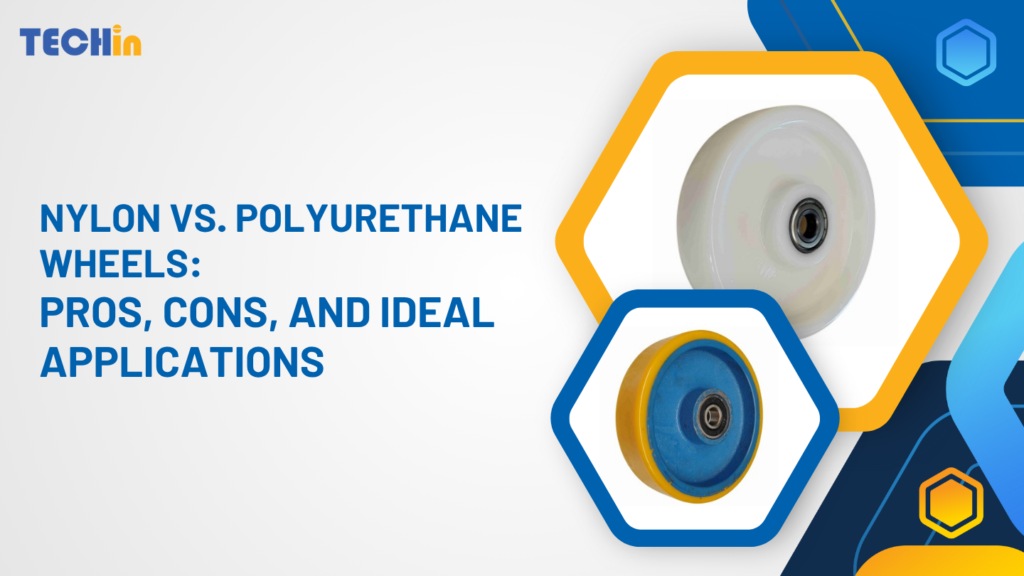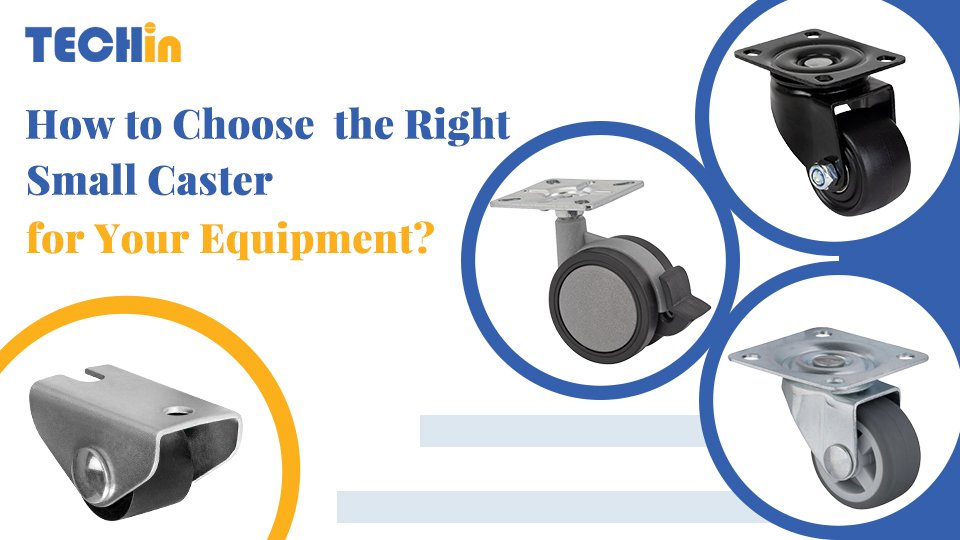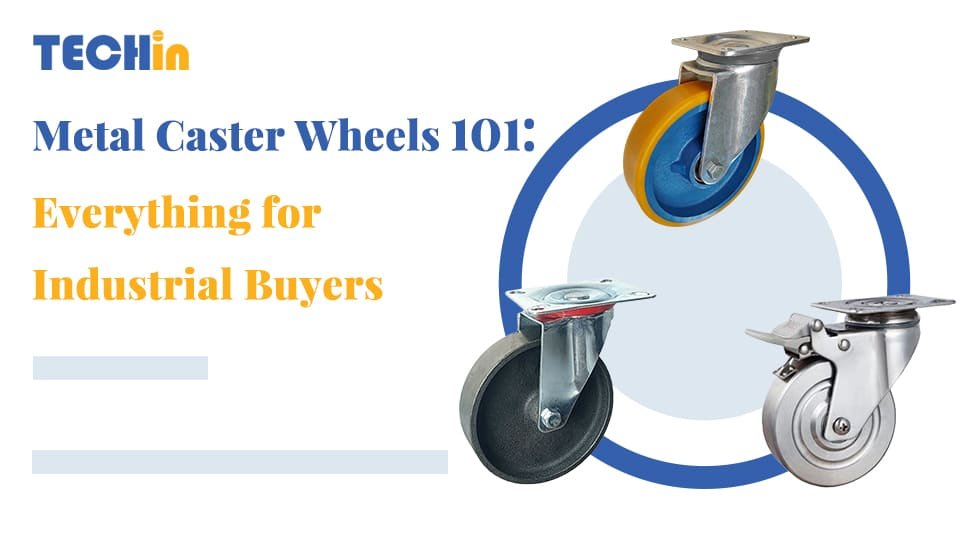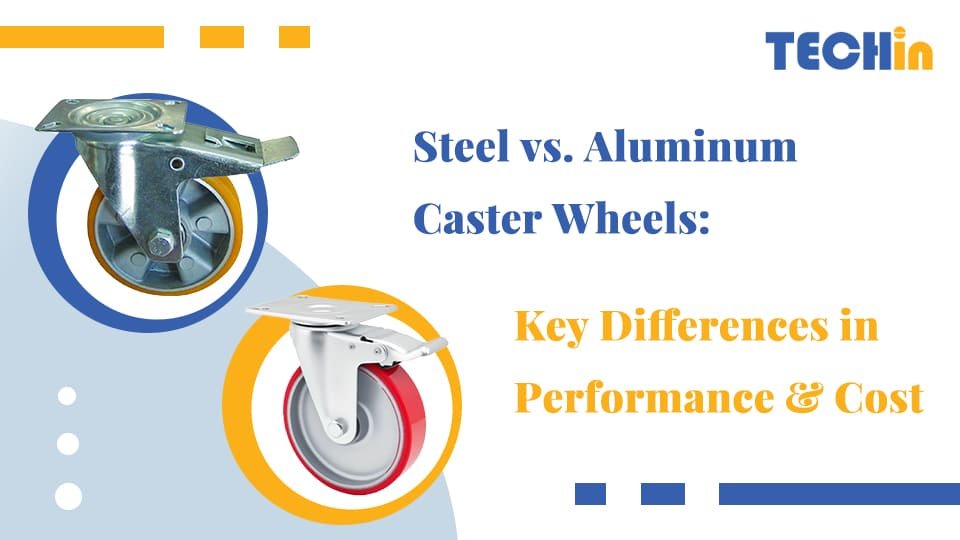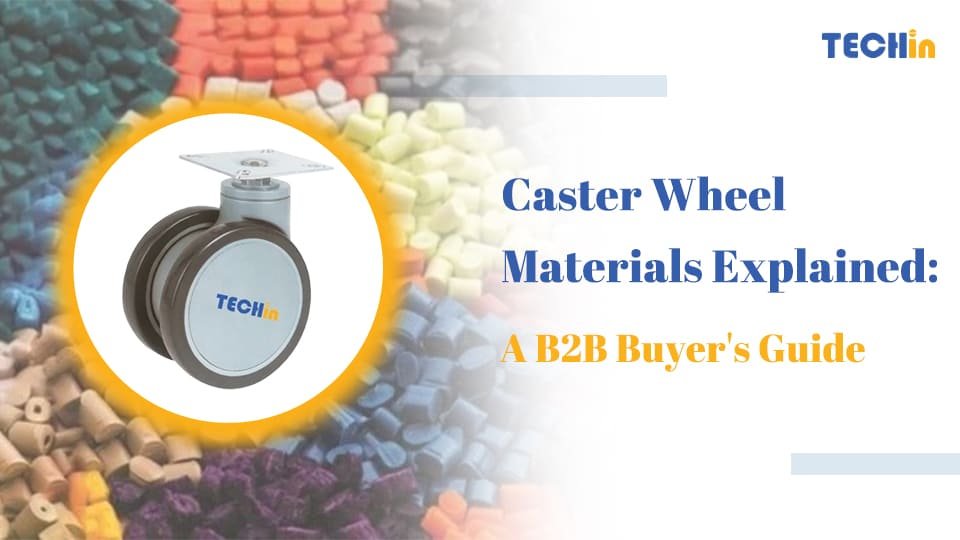Picking the right wheels for your cart, chair, or industrial equipment feels like a small decision, right?
Wrong.
Get it wrong, and you’re stuck with scratched floors, a racket that drives everyone crazy, or worse—a wheel that gives out when you need it most. You’re not just buying a wheel; you’re buying performance, safety, and peace of mind.
The whole point is to focus on your needs, not just the product’s specs. You should be the hero of this story, getting exactly the result you want. This guide is here to make sure you get this right.
The bottom line is this: Nylon is your industrial workhorse—strong, cheap, and chemical-resistant. Polyurethane is your smooth operator—quiet, floor-friendly, and perfect for spaces where people are the priority.
Let’s break down what that actually means for you.
What Are Nylon Wheels?
Think of nylon (PA) wheels as the tough guys. They’re molded from a high-strength plastic that just doesn’t quit. If you need to move heavy loads across a smooth, hard factory floor, these are your go-to. They roll easily, laugh off oil and chemical spills, and are incredibly cost-effective. But here’s the trade-off: they’re loud. And if you have nice floors, they can definitely leave their mark. They’re built for pure function, not for comfort.
What Are Polyurethane Wheels?
Now, let’s talk about polyurethane (PU) wheels. These are the “smooth operators.” They blend the best of rubber and plastic to give you a quiet, cushioned ride. If you’re worried about scratching up your hardwood, tile, or epoxy floors, PU is your answer. They grip better, absorb bumps, and are perfect for places where noise is a deal-breaker—like hospitals, offices, or retail stores.
The Head-to-Head Comparison: What Matters to You?
Instead of a boring list of pros and cons, let’s look at what you’re actually trying to achieve.
🔸 a. Hauling Heavy Stuff
If you’re moving serious weight, nylon is your champion. It’s built to take a beating without cracking under pressure. It’s the clear choice for demanding production lines or heavy transport carts.
Polyurethane is more for your light-to-medium jobs. It gives you that cushioned ride, but be careful—if you leave a heavy, static load sitting on it for weeks, you might come back to a flat spot.
🔸 b. Working Around Chemicals and Grease
This one’s a no-brainer. Nylon wins, hands down. It shrugs off oils, solvents, and other industrial gunk you’d find in a factory or auto shop.
PU wheels can get soft or break down if they’re constantly exposed to aggressive chemicals. For an office or hospital, PU is perfectly fine. For a chemical processing plant, it’s nylon all the way.
🔸 c. Can You Stand the Noise?
Let’s be honest. Nylon wheels are noisy. On a concrete floor, they can make quite a racket. If you’re in a customer-facing area, a hospital, or an office, that noise is a problem you don’t need.
Polyurethane wheels are the silent solution. They roll smoothly and quietly, which is exactly what you want when you need to keep things peaceful.
🔸 d. Are You Worried About Your Floors?
This is where polyurethane truly shines. It’s the floor-friendly option, period. It won’t scuff or scratch your expensive hardwood, tile, or epoxy-coated floors.
Nylon is the opposite. It’s tough and abrasive—great for a rugged concrete warehouse floor, but a potential disaster for anything delicate. You have to think about the surface you’re rolling on.
🔸 e. What’s Your Budget?
Nylon is the budget-friendly choice. If you need to outfit a whole fleet of carts and cost is your primary driver, it’s a solid, durable option.
Polyurethane costs more upfront, no doubt about it. But think about what you’re paying for: quiet operation, protected floors, and a smoother ride. For many, that extra cost is a worthwhile investment to avoid bigger headaches down the line.
So, When Should You Use Nylon Wheels?
Simple. Choose nylon if you’re in a tough, industrial setting where durability and cost matter more than anything else.
- Industrial trolleys and factory carts
- Warehouses with concrete floors
- Environments with oil, solvents, or heavy cleaning agents
- Heavy-duty material handling
Techin’s new Nylon 6 wheels are engineered for enhanced toughness, making them a smart choice for modern industrial needs.
Find out more here: Techin Nylon Casters
And When is Polyurethane the Right Call?
Think about any place where people and delicate surfaces are the priority. If you need to keep things quiet and protect your floors, PU is the only way to go.
- Medical carts and hospital equipment
- Office chairs and furniture
- Retail shopping carts
- Food service trolleys and indoor logistics
For a high-performance, floor-friendly solution, check out Techin’s Polyurethane Tread PA Core Wheels. They’re built for precision and a smooth, quiet roll.
Discover them here: Techin Polyurethane Casters
The Final Word
It’s not about which wheel is “better”—it’s about which wheel is better for you. You have to know what’s important for your situation.
Are you prioritizing brute strength and low cost? Go with nylon.
Do you need to protect your floors and keep things quiet? Polyurethane is your answer.
Making the right choice from the start saves you from headaches, damaged property, and wasted money. It’s that simple. If you’re still not sure, just ask. We’re here to help you get it right.

